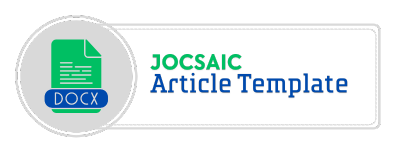Evaluating the Impact of Knowledge Management Systems on Organizational Performance: A Technology Company Case
DOI:
https://doi.org/10.64803/jocsaic.v2i1.27Keywords:
Knowledge Management System, Organizational Performance, Technology Company, Innovation, Knowledge SharingAbstract
This study aims to evaluate the impact of Knowledge Management Systems (KMS) on organizational performance within a technology company. In the digital era, knowledge has become a critical asset that drives innovation, efficiency, and competitive advantage. By leveraging a case study approach, the research examines how the implementation of KMS influences various performance indicators, including productivity, decision-making quality, employee collaboration, and knowledge retention. Data were collected through interviews, observations, and internal documents, and analyzed using a mixed-method approach. The findings suggest that effective use of KMS significantly improves organizational agility and innovation capabilities. However, the study also identifies challenges such as resistance to change, lack of user training, and insufficient integration with existing workflows. To maximize the benefits of KMS, organizations must foster a knowledge-sharing culture, provide ongoing support, and align KMS strategies with business objectives. The insights from this research are expected to contribute to the development of more effective knowledge management practices in technology-based organizations.
Downloads
References
[1] B. O. Ibojo and G. O. Mobolade, “Effect of Knowledge Acquisition on Organizational Performance,” Int. J. Econ. Bus. Manag., vol. 9, no. 8, 2023.
[2] F. Olan, E. O. Arakpogun, J. Suklan, F. Nakpodia, N. Damij, and U. Jayawickrama, “Artificial intelligence and knowledge sharing: Contributing factors to organizational performance,” J. Bus. Res., vol. 145, pp. 605–615, 2022.
[3] S. Natek and D. Lesjak, “Knowledge management systems and tacit knowledge,” Int. J. Innov. Learn., vol. 29, no. 2, pp. 166–180, 2021.
[4] A. Daghfous, A. Qazi, and M. S. Khan, “Incorporating the risk of knowledge loss in supply chain risk management,” Int. J. Logist. Manag., vol. 32, no. 4, pp. 1384–1405, 2021.
[5] B. D. Suseno, E. Sugianto, E. Purnamasari, and A. Supriadi, “Analysis of the Application of Operational Management in Manufacturing Companies in Bandung City: The Effect of Production Efficiency, Product Innovation, and Customer Satisfaction on Financial Performance,” West Sci. J. Econ. Entrep., vol. 1, no. 11, pp. 535–546, 2023.
[6] M. Nakash and E. Bolisani, “Making knowledge management transparent: a new perspective on KM processes integration in the organizational framework,” Bus. Process Manag. J., 2024.
[7] A. T. Lee, R. K. Ramasamy, and A. Subbarao, “Barriers to and Facilitators of Technology Adoption in Emergency Departments: A Comprehensive Review,” Int. J. Environ. Res. Public Health, vol. 22, no. 4, p. 479, 2025.
[8] H. Idrees, J. Xu, S. A. Haider, and S. Tehseen, “A systematic review of knowledge management and new product development projects: Trends, issues, and challenges,” J. Innov. Knowl., vol. 8, no. 2, p. 100350, 2023.
[9] R. K. Mohammed, N. E. Ahmed, E. M. Aziz, and A. Dewi, “Knowledge management plays a crucial role in attaining a competitive advantage,” Al-Idarah J. Kependidikan Islam, vol. 13, no. 2, pp. 113–123, 2023.
[10] M. A. Al Doghan and V. P. K. Sundram, “Organization operational efficiency and Innovativeness: Exploring the role of employees’ task-based training, operational task commitment, operational engagement, and supervisor support,” Int. J. Oper. Quant. Manag., vol. 29, no. 1, pp. 108–127, 2023.
[11] J. Abbas and K. Kumari, “Examining the relationship between total quality management and knowledge management and their impact on organizational performance: a dimensional analysis,” J. Econ. Adm. Sci., vol. 39, no. 2, pp. 426–451, 2023.
[12] N. Matović and K. Ovesni, “Interaction of quantitative and qualitative methodology in mixed methods research: integration and/or combination,” Int. J. Soc. Res. Methodol., vol. 26, no. 1, pp. 51–65, 2023.
[13] P. J. Jordan, A. C. Troth, and H. Yan, “Objective and subjective measurement in applied business settings: Improving research in organizations,” Aust. J. Manag., vol. 50, no. 1, pp. 8–31, 2025.
[14] S. A. R. Khan, M. Tabish, and Y. Zhang, “Embracement of industry 4.0 and sustainable supply chain practices under the shadow of practice-based view theory: Ensuring environmental sustainability in corporate sector,” J. Clean. Prod., vol. 398, p. 136609, 2023.
[15] A. Thomas, “Digitally transforming the organization through knowledge management: a socio-technical system (STS) perspective,” Eur. J. Innov. Manag., vol. 27, no. 9, pp. 437–460, 2024.
Downloads
Published
Issue
Section
License
Copyright (c) 2025 Amru Yasir, Deni Apriadi, Muhammad Noor Hasan Siregar, Divi Handoko, M. Arif Rahman (Author)

This work is licensed under a Creative Commons Attribution-ShareAlike 4.0 International License.









